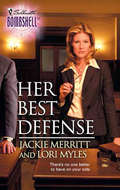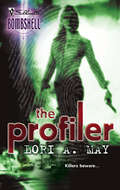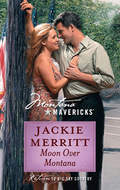Kitab fayl olaraq yüklənə bilməz, yalnız mobil tətbiq və ya onlayn olaraq veb saytımızda oxuna bilər.
Kitabı oxu: «A Clean Slate»
A Clean Slate
LAURA CALDWELL
graduated from University of Iowa, before getting her law degree from Loyola University Chicago School of Law. Laura was a trial lawyer for many years, specializing in medical negligence defense and entertainment law. She is widely published in the legal field, as well as in numerous mainstream publications. Burning the Map, her first novel, was published by Red Dress Ink and chosen by Barnes & Noble.com as one of “The Best of 2002.”
Laura is currently a writer and contributing editor at Lake Magazine, as well as an Adjunct Professor of legal writing at Loyola University Chicago School of Law. Please visit her online at www.lauracaldwell.com.
A Clean Slate
Laura Caldwell

MILLS & BOON
Before you start reading, why not sign up?
Thank you for downloading this Mills & Boon book. If you want to hear about exclusive discounts, special offers and competitions, sign up to our email newsletter today!
Or simply visit
Mills & Boon emails are completely free to receive and you can unsubscribe at any time via the link in any email we send you.
All my admiration and appreciation to the following people: my stellar editor, Margaret Marbury, Maureen Walters at Curtis Brown, Ltd., everyone at Red Dress Ink (especially Laura Morris, Tania Charzewski, Craig Swinwood, Margie Miller, Maureen Stead and Don Lucey), Beth Kaveny, Suzanne Burchill, Kelly Harden, Ginger Heyman, Trisha Woodson, Ted McNabola, Joan Posch, Rochelle Wasserberger, Hilarie Pozesky, Alisa Speigel, Katie Caldwell Kuhn, Margaret Caldwell, William Caldwell, Karen Billups, Stacey Billups, Kelly Caldwell, Dr. Stuart Rice, Kim Wilkins, Joe Ford, Joel Odish, Anthony Parmalee (photographer extraordinaire) and Greg Brown and Roberto Puig of BMG Model Management.
Lastly, and once again most importantly, thanks, love and overwhelming gratitude to Jason Billups.
“Life isn’t about finding yourself; life is about creating yourself.”
—George Bernard Shaw
Contents
Chapter 1
Chapter 2
Chapter 3
Chapter 4
Chapter 5
Chapter 6
Chapter 7
Chapter 8
Chapter 9
Chapter 10
Chapter 11
Chapter 12
Chapter 13
Chapter 14
Chapter 15
Chapter 16
Chapter 17
Chapter 18
Chapter 19
Chapter 20
Chapter 21
Chapter 22
Chapter 23
Chapter 24
Chapter 25
Chapter 26
Chapter 27
Chapter 28
Book Club Questions
1
Have you ever had a moment when you’ve known—I mean, logically known in your head—that you’re a fantastically lucky person, that you’re truly fortunate to have an education, to live in a nice place in a great city, to have friends who care about you and all that, but you just can’t get yourself to actually feel it?
Well, I was having one of those moments on the day it all started. I stood in the dry cleaners, where the temperature was about a hundred eighty degrees from the pressing and steaming machines.
“Sorry, sorry. No clothes for you,” the tiny Asian woman said as she came back to the cracked linoleum counter for the third time.
I clicked my nails on the counter and expelled a massive breath of hot air, trying to maintain rational thought. “Can you please look one more time? I brought in a whole bag of clothes last week.” I tried not to think of my favorite black pants—my skinny pants—which had been in that bag.
“You have ticket?” The lady waved a pile of pink slips.
“No,” I told her. I never saved those pesky things. Never had to before.
She shrugged. “I look again.” Wiping sweat from her eyebrows, she turned away. As she disappeared into a sea of hanging, plastic-covered clothes, I tried to guess her size. Was it possible that she had stolen my black pants and was wearing them on the weekends?
I felt one of my temper tantrums coming on, but I forced it down. I am lucky to be alive, I told myself as I leaned on the counter, fanning my face. I am lucky because I am now losing weight at an average of a pound a minute. I am lucky because I have a great town house and a nice boyfriend who is soon to be my fiancé, and a decent job and lovely friends. I’ve really got the world by the tail.
The problem was this—I wasn’t buying a word of it. My nice boyfriend soon-to-be-fiancé, Ben, was at my great town house, true, but he wouldn’t be so nice when he learned that his favorite French-blue shirt had been destroyed by the dry cleaners from hell. And the decent job I had—as a research analyst at an investment bank called Bartley Brothers—was starting to look like a ticket straight to nowhere-ville. I’d been toiling for years, digging up information on retail stocks so that my boss could pass on my recommendations and then take all the credit when we made money, or blame me when we lost it. After almost eight years of promises that I would soon be considered for partnership, it still hadn’t happened. Finally, my best friend, Laney, my sanity advisor, was off at some marketing conference (read: company boondoggle) in Palm Beach.
“Sorry,” the dry cleaner said, emerging from the plastic sea, looking even more red-faced and sweaty. “We have nothing for you.” She gave another helpless shrug.
“Can you please keep looking, and I’ll stop back later in the day?”
“Okay, okay.”
I stomped out of the sweltering store, a crisp Chicago breeze hitting me blessedly in the face. As an El train clamored to a halt on the tracks over my head, I trudged up Armitage Avenue, muttering obscenities about my missing clothes and the incompetence of the dry cleaners. The street was full of couples doing Saturday morning errands hand-in-hand, along with the post-college baseball-hat crowd searching for hangover grub.
I took a couple of deep breaths, but they brought no relief from my cranky mood. Ben rarely, if ever, held my hand and did errands with me on the weekends. Saturday mornings were his time to run with his marathon group or train for one of the other races he was constantly entering. It didn’t bother me…not really. Because Ben worshipped at the Church of Holy Workouts he had an amazing body, something that benefited me as well as him. Yes, sex was fine. More than fine, actually. But if I were forced to lodge one complaint about Ben, it would be this—we no longer had any of those couple-y, sappy-eyed rendezvous, such as candlelit dinners or surprise weekends at a log cabin. Romantic interludes just weren’t his thing these days, or at least that’s what he told me, what I told myself to make myself feel better when I saw other couples having picnics in Lincoln Park and horse-drawn carriage rides down Michigan Avenue.
Ben was sweet and funny and wonderful in his own way, though. He would cheer me up by singing show tunes in a falsetto voice, and when it was time to carbo-load for his next race, he’d cook huge pasta dinners for the two of us. And last January when my sister, Dee, died, Ben was amazing—an absolute rock. I couldn’t have gotten through it without him.
At Bissell Street, I took a left and walked along the sidewalk, crunching over a golden bed of fallen leaves, moving past the rusty autumn trees and stone three-flats until I hit the stretch of brick town houses, one of which was mine (something I was inordinately proud of). I’d saved all my paychecks from Bartley Brothers, and this place was the first home I’d ever owned, the place Dee used to love to stay when she came to visit, the place where Ben and I would live when we were married. The sun was peeking through the red curtain of trees, making an X-like pattern on the town homes. Normally, I would have loved to take photos of that—I liked the way the rays made crosshairs on the brick—but I was too annoyed by the dry cleaning debacle to think about getting my Nikon.
Before I went inside, I stopped at the bank of oblong silver mailboxes in the little courtyard located right behind the town houses. I stuck the key in the third one, my box, and tried to turn it to the right as I always did, but it wouldn’t budge.
I screwed my face up tight and tried again. Maybe the eager-bunny mailman had stuffed a stack of magazines in there, jamming the lock. I tried over and over, but the key wouldn’t turn.
I took it out and jiggled it in my hand, as if that would help. I was looking back at the box, lifting the key to try again, when I noticed what was wrong. The tiny black plate with white letters affixed to the box, the plate that should have said my name, KELLY MCGRAW, instead read BETH & BOB MANINSKY.
What the hell? I moved down the row of boxes, peering closely, reading each one: LILY CHANG, SIMON TURNER, MILLER/SAMSON, and on and on, but no KELLY MCGRAW.
I repeated the process two more times, then stood still, swiveling my head, looking at the trim bushes that were beginning to turn red at the edges and the brick walls of the surrounding town houses. Was there another bank of mailboxes somewhere? No, that couldn’t be right. This was the only set, the same place I’d been getting my mail for almost a year.
And then I figured out what it was. The damned management company. The company to whom I paid two hundred dollars a month so that they could refuse to repaint the garage door or fish a spoon out of my clogged sink. They’d screwed up once more.
Muttering again, I strode around the side of the town houses and up the front stairs to my place. The door was tall and painted green to match the trim on the bay windows. I tried the doorknob, but it was locked. Ben must have headed out for a run already. Just as well. I could prolong telling him that he’d probably never see his French-blue shirt again.
I put the key in the lock, or at least I tried, but it didn’t insert smoothly. Finally, I got it in and attempted to turn it. Déjà fucking vu. This lock wasn’t working, either. I wrestled with the key, grasping it with both hands and trying to force it to the left, as the wind whipped my hair in front of my face so I couldn’t see. Deep cleansing breaths, I told myself in a low soothing tone, just like the woman in my meditation tapes would say it. Inhale in, exhale out. I did this a few times, batting my hair out of my eyes, then tried the key again. No luck.
My deep-cleansing-breaths mantra turned to thoughts of violence. I would have to physically harm everyone in the management company now. This was ridiculous.
On the off chance that Ben was still home, I rang the doorbell. Ding, ding, ding—I could hear it going off inside. If he was home, doing his prerun stretches, he would be annoyed, but I didn’t care.
Ding, ding, ding, ding—I tried one more time, and then, thank God, I heard footsteps inside pounding down the stairs.
As the door swung open, I was already in midrant. “The dry cleaners lost our stuff, can you believe it? They say they’ll look some more, but it’s as good as gone. Your blue shirt was in that load, and my favorite black pants—and then the mailbox was messed up and…”
My body froze, along with my tirade, as I realized that Ben hadn’t opened the door. It was someone else. Someone I’d never seen, some woman.
She had short blond hair cropped close to her head. In fact, she looked a little like the pictures of Ben’s high school girlfriend, Toni, the woman he said he’d always love. And then the truth of the situation hit me. Ben was cheating on me, right here in my own house, getting his groove on with some girl who looked like Toni, when I’d only been gone an hour or so. Unbelievable. This wasn’t happening. Now I would have to kill Ben along with the management people. A thousand thoughts flew through my brain like birds let out of a cage. I couldn’t hold on to just one.
“Hi, can I help you?” the Toni look-alike said, a sweet smile grazing her face.
“Can I help you?” I crossed my arms over my chest, then, thinking better of it, dropped them and pushed past her inside. “Hey!”
The first thing I noticed was that my high mosaic table, the one made of tiny pieces of broken glass, the one I’d bought at an art fair, wasn’t there. Instead, in its place, there was a heavy wooden coat tree, its arms jutting out, holding a woman’s pink trench coat and a tiny kid’s sweatshirt.
“What’s going on here?” The woman’s voice was low and cautious, the kind of voice cops use with loose criminals on TV.
I wanted to make a smart comment, ask her the same thing, but a flock of doubts flew around in my head along with the other birds. “This is my house,” I said, but I heard my voice waver.
I spun around to check something, and sure enough, there it was, next to the coat tree. The dent in the drywall where Ben’s skis had fallen against it last year. This was my place, so what was the Toni look-alike doing here? And what was with that coat tree?
“No,” she said. “This is my house. My husband and I bought it a few months ago.”
I bit my lip and looked at her, confused. “Is Ben here?”
“There’s no Ben who lives here. What’s your name?” She took a step closer to me, as if she was afraid I’d move farther into the house.
I peeked my head around the corner and into the study, expecting to see the big, scarred desk that my mom had given me when she moved to L.A., but in its place was a playpen with yellow mesh sides and a jumble of brightly colored toys.
“Kelly McGraw,” I said, yet even that came out a little unsure.
The woman gave me the sweet smile again. “Oh, you’re Kelly McGraw! I’m Beth Maninsky. We never did meet you at the closing.” She held out her hand.
“Closing?”
“Sure. We bought this house from you, but you gave your lawyer power of attorney, so we never officially got to meet you when we closed on the house. We love it, though. Did you stop by for old times’ sake?” She tried the smile again, but when I didn’t shake her hand, the grin faltered, and now she was looking as perplexed as I felt.
“Closing?” I said again. “I sold this house?”
She nodded, gazing at me warily.
From somewhere above, I heard the cry of a baby, short at first, then a full-on wail. Beth Maninsky’s eyes shot to the ceiling as if she could see through it.
“A baby?” I couldn’t seem to form a full sentence.
“Scottie. I should get him. Now can I help you with anything?”
I just stood there. What was happening?
“Kelly? Are you all right?”
Beth Maninsky looked almost scared now, so I just nodded and moved to the door, then out to the stoop. I stood there looking at the house, my house.
Beth Maninsky stood in the doorway, fairly blocking it with her body. “Can I call someone for you?” There was warmth in her voice.
It took me a second to answer. “No. I’ll go to my boyfriend’s place.”
“Okay.” The wail of the baby got louder behind her. She glanced in the house, then back at me. “You sure you’re okay?”
“When you…” I paused, barely able to say the words that didn’t seem true “…bought this house. Did you learn why I…sold it?”
“Our Realtor told us that you thought it was too big for one person.”
“Right.” I nodded as if I could convince myself that this was really happening, that someone named Beth Maninsky, who looked like Toni, owned my house.
“Nice to meet you,” Beth Maninsky said.
My front door closed, and I heard the lock click inside.
2
As I walked along Bissell Street again, the fall wind felt brittle instead of crisp and the city seemed cool and gray instead of filled with warm autumn tones. I didn’t notice the light on the buildings anymore or think about the photos I could take. Instead, I concentrated on figuring out what had happened. There had to be an explanation. I knew that. I hadn’t gone to college or worked in the straight-lines, think-inside-the-box world of finance for nothing. There was always a reason for things.
So I hoofed it all the way up to Ben’s place in Wrigleyville, entertaining several possibilities. One—this Beth Maninsky was a covert operative for the CIA who’d taken over my town house in order to set up an elaborate cover. Crazy, outlandish, I know, but I’m fond of spy novels, and it was the first potential that came to mind. Two—Beth Maninsky really was Ben’s high school girlfriend, Toni, who was still crazed about him and had somehow arranged to take my place in his life. This also seemed a little outrageous, since I’d only set out for the dry cleaners that morning. She would have needed to work pretty damn fast.
But was that actually true? Had I really left for the dry cleaners just a few hours ago? Suddenly I wasn’t sure. I stuck my hands in the pockets of my leather jacket and put my head down, concentrating on each step, each seam in the pavement. My sense of timing still seemed off. I couldn’t remember waking up that morning or going to my mother ship, Starbucks, for a Venti Nonfat White Chocolate Mocha, my usual Saturday-morning treat. Still, that kind of memory trick happened, didn’t it? It was like driving home on your normal route and suddenly discovering you’re in your driveway and yet you can’t recall the drive itself.
Something niggled in my brain—a third possibility. I really had sold my town house and I really couldn’t remember it. I felt even colder with the thought, and I turned my collar up against the wind. Ridiculous, I said silently. Preposterous.
Luckily, I didn’t have to argue with myself much longer because I’d reached Ben’s building, a squat, multi-unit place that made up for its lack of character with cheap rent and a great location, only a few blocks from Wrigley Field. I peered at the vertical list of names next to the buzzers, and, thank God, there it was. BENJAMIN THOMAS, fifth from the top, right where he should have been. I hit the buzzer.
A shot of static came over the intercom. “Who is it?” said a woman’s cheery voice.
“Sorry. Wrong buzzer.” Please, please, please let it have been the wrong one.
I peered at the list again, and with exaggerated slowness, I put my finger on the brown button next to Ben’s name and pressed.
Same staticky burst. Same woman’s voice—not as cheery this time—saying the same words.
I froze. Something was wrong. Really, really wrong. But somehow my eternal optimism (or maybe my eternal stupidity) kept insisting there was a logical reason for all of this—something I would laugh about later.
I couldn’t laugh now, though, couldn’t even manage a smile, just a simple question laden with trepidation. “Is Ben home?”
“Kelly?” the woman said, clearly irritated.
“Yes?”
“Jesus. Not again.” A fizz of static, and then the intercom went silent.
I stood chewing on my bottom lip once more, debating what to do—piss off this woman in Ben’s apartment by hitting the buzzer again or break in and kick her ass. After about fifteen seconds, someone appeared behind the glass door. I squinted and made out Ben’s small, lean frame, his rock-hard legs in blue jogging shorts. Raising my hand, I gave a half wave, then let it fall.
Ben opened the door, but he didn’t invite me in or even come out on the front stoop with me. He just sighed, holding the door open with one arm, shoving his other hand through his damp brown hair. He’d obviously just come back from running. He had that pink flush to his cheeks.
“Kell, you’ve got to cut this out.”
I tried to get my mind around his statement. I forced myself not to rush inside and hug him. “What do you mean?”
“You know what I mean. Stopping by like this, calling at all hours. She wants me to get a restraining order.”
“Who?”
A chest-heaving exhalation. “We’ve had this conversation. Don’t make me go through it again. I love you. I always will.”
Just like you’ll always love Toni, I thought.
“But I’m with Therese now,” he continued, “and you have to accept that.”
I put my head in my hands and rubbed at my temples. Another possibility came to mind—this was all an elaborate hoax. Laney would jump out from behind Ben at any minute and scream, “We got you!” The problem was Laney would never be that cruel, nor would Ben. He may not have been the most romantic guy, but he was always kind.
“C’mere, Kell.” Ben stepped out and let the door close behind him. He grabbed me in a hug, just as I hoped he would. I could smell the clean, outdoor scent of his sweat and feel the muscles of his back beneath the long-sleeved T-shirt.
“I don’t know what’s going on. I don’t understand anything.” I squeezed him tight, hoping that this gesture would make it all go away, this whole horrible day, but too soon the embrace was over. He let me go, and I felt the cool air swirl around me again.
“I know it’s been rough, but you’ll get through this. You always do.” He pushed his hair off his face and gave me a smile I recognized—the one he saved for his grandmother or the restaurant managers he would cajole into giving us a table.
I opened my mouth to tell him what had happened this morning, how I suddenly couldn’t make sense of anything in my life, but he gave me that patronizing grin again.
“You’re tough.” He punched me lightly on the arm like we were buddies, like we hadn’t been lovers for four years, like we weren’t supposed to be engaged soon.
“Ben,” I said, trying to ignore his patent condescension, “something’s going on that I don’t understand. I don’t remember all sorts of things. I don’t remember us breaking up. I—”
“Kell, I just can’t do this again. I can’t rehash the whole thing over and over, okay?” He cupped my cheek for a second, the way you would a child who had food on his face.
I pulled my head away. “No, you don’t get it.”
“I do. I get that you’re going to make it through this. You’re going to be okay.” He spoke these last words in a soft, hang-in-there-kid kind of way that infuriated me.
I glanced down at a spot on the sidewalk that looked strangely like old blood, then back up at his pitying eyes. “You’re absolutely right. I’m going to be fine. Fantastic even.”
“There you go,” Ben said in what was probably the smuggest tone I’d ever heard. “That’s the ticket.”
Yeah, that’s the ticket all right, I thought. The ticket out of here. I didn’t have a clue what was going on, but I wouldn’t give him the satisfaction of seeing me fall apart.
“I’ll see you around.” I tried to sound flip, like I didn’t care, but I could feel the tears welling in my eyes. “See you,” I said again, then turned away.
As I walked up the street, my head down, my hands in my pockets, I could hear Ben buzzing his apartment, and the woman’s voice say over the intercom, “Ben, is that you?”
“It’s me, hon. Let me up.”
I stopped at Chuck’s, the first bar I found. Inside, it was dark, with at least five different football games blaring from at least ten different TVs. The tables were full of people cheering and screaming, baskets of fries and pitchers of beer in front of them. I slipped onto a stool at the bar.
“What can I get you?” the bartender asked me. He leaned forward and dried a spot of water on the wood with a quick flick of his towel.
“Beer.”
“Okay. Well, we have twenty-three different labels, so what kind do you want?”
“Doesn’t matter.” I usually drank margaritas, but it seemed too festive a drink.
The bartender stood there for a long minute, staring at me, before he moved toward a silver tapper and picked up a glass.
What was happening to me? What had happened to my town house, to my relationship with Ben? I wished desperately that I could rewind the day back to that moment at the dry cleaners when I was being pissy about losing a pair of black pants and the fact that my job wasn’t so great. If I could just go back, I would truly realize how lucky I was right at that moment. I would appreciate it somehow.
But my mind kept skidding away from the dry cleaners and rushing through the rest of the day. Why hadn’t I known that my place had been sold, that Ben and I had broken up?
The bartender pushed a glass of amber beer in front of me without a word. I took a sip, and I made myself review what I did know about myself. Name: Kelly McGraw. That was correct, wasn’t it? Beth Maninsky seemed to know that Kelly McGraw used to live in her house, and Ben had called me Kell, so that had to be right.
What else? Parents: Sylvie and Ken McGraw, who’d had me while they were married for a very brief period and living in Fort Myers, Florida. My father was a complete shit who took off a year after my birth, and my mom reverted to her maiden name, Sylvie Custer, even though she hated it. It was too close to custard, she always said, and made her sound like some sort of pudding.
Childhood: my mom worked her way from being a secretary at a TV station to a production assistant there, and a few years after that, she married Danny Rosati, a local crime boss who was the subject of an exposé she’d helped put together. Danny wasn’t much of a dad to me. He always treated me more like a pet, patting me on the head and giving me treats when I was good. He did give me my first camera, though, and for that I’d always be grateful. My mom gave birth to my half-sister when I was six. She was named Delores after Danny’s mom, but except for Danny, everyone called her Dee. Dee was always a frail kid, but she had the greatest toothy smile and the loudest laugh you’d ever heard.
After my mom divorced Danny, we moved to Atlanta so she could work for a better TV station, and we stayed there until after my freshman year in high school, when we moved to Chicago. I joined the yearbook staff at my new school because at least I could take pictures, even if they were of people I didn’t know—and that was where I met Laney. We’d been best friends ever since. We went to different colleges but visited each other constantly and shot up our phone bills. After we graduated, we got an apartment together in Lakeview and shared it until a few years ago.
Laney is the most energetic person I’ve ever met. Sometimes she’ll call me at eight in the morning, before she leaves for her account exec job at a marketing firm, and she’ll tell me that she’s already done her laundry, given herself a leg wax and taken a kick-boxing class at the gym. Laney was the person, other than Ben, who’d saved me when Dee died last year in a car accident. My mom and I couldn’t comfort each other; we reminded each other too much of Dee. My mom left Chicago—fled really—for L.A. last April to take a job with an entertainment news show, and Laney and Ben became my only family in town.
What happened after April? I tried to think about stocks I’d researched at work, weekend trips I’d taken, street fairs I’d gone to over the summer. Nothing. I couldn’t remember anything from May up to now, the beginning of October, a span of five or so months.
I took a gulp of my beer, hoping it would help, maybe induce some kind of alcoholic flashback. Nothing again. I had to talk to someone about this. Ben was out. Laney was my only support now, and she was in Palm Beach. Or was she?
I sat up straighter on the stool and pushed my beer away, trying to concentrate. Laney had gone to a marketing conference in Palm Beach for a week. But was that this week? I’d been wrong about so many things today.
I threw five dollars on the bar and took off for the pay phone. As I pushed my way toward the rest rooms, I noticed that everyone else in the place seemed to be having a fantastic time. People were slapping high fives when touchdowns were scored, pouring beer for their friends, throwing their heads back and laughing at stories from the night before. I’d had days like this, spent watching football and drinking in a smoky bar when it was bright daylight outside. Those times had always seemed simple, uncomplicated, and yet while they were happening I’d be drifting off about whether I’d make partner, whether I should ask Ben to move in with me. Once again, I wished I could hit Rewind and just enjoy that time, instead of letting my mind take me somewhere else.
Luckily, there was a pay phone in the women’s bathroom, so the noise was dimmed. I dialed Laney’s number, thinking that even if her voice mail answered I could talk and talk, and she would pick it up eventually. Sometimes, when we got busy, Laney and I communicated solely by voice mail. We knew each other so well that we didn’t have to be on the phone to feel like we were talking to each other.
I was starting to think of how I would phrase it, this strange, scary day, when I heard the chipper tones of Laney’s hello.
“Oh, God, you’re home.” I was so relieved that I actually leaned my head on the dirty phone box. “You’re not in Palm Beach.”
“Palm Beach? That was months ago.”
A chilly feeling passed through me. “Lane, something’s wrong.”
“I know, sweetie. Now hold on for a second, so I can sit down.” I heard Laney closing her refrigerator and, a moment later, her slight exhalation as she sat on the couch. “Okay. Shoot.”
How did she know something was wrong with me? “Well, uh, for starters, apparently Ben and I aren’t dating anymore.”
“Apparently? Honey, he dumped you months ago, and you’ve got to move on. Really. He’s just not worth this moping around.”
“Months ago?” My voice came out tiny and scared.
“On your fucking birthday, remember?”
A group of women came into the bathroom, giggling and shoving past me.
I ducked my head and cupped my hand around the receiver. “That’s just it. I can’t remember.”
“Where are you?”
“Chuck’s.”
“The bar by Ben’s place?” Her voice went a little high. “You didn’t go to his apartment again, did you? Kell, you’ve got to—”
“Laney, listen to me. I don’t remember.” I enunciated my words. “I don’t remember selling my town house. I don’t remember Ben breaking up with me. I can’t seem to remember anything about the last five months.”
Pulsuz fraqment bitdi.








